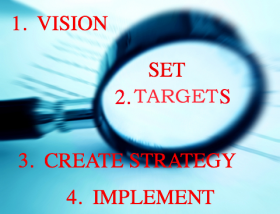Brand
Business
Leadership

“This book tells you all you need to know about how to get on.” The Times
“Relatively few books have been written with assistant solicitors in mind, about how to succeed at the business of being a lawyer… fewer still have devised a programme for so doing that runs alongside a book. This book does both.”Law Society (The Law Management Section)
5 star rating HR Magazine
 Like many of us (especially lawyers working furiously to a client deadline), have you waited until the last minute to get your Christmas shopping done? If so, and if someone on your list is a lawyer (or in the business of law), and especially if he or she is an aspiring partner, Juggling the Big 3 might just be the ticket. (Granted, you must be careful, because a book on "how to succeed" might not send the right message, particularly if it's a gift for your partner/spouse/loved one and you've been hinting at their career deficiencies...)
Like many of us (especially lawyers working furiously to a client deadline), have you waited until the last minute to get your Christmas shopping done? If so, and if someone on your list is a lawyer (or in the business of law), and especially if he or she is an aspiring partner, Juggling the Big 3 might just be the ticket. (Granted, you must be careful, because a book on "how to succeed" might not send the right message, particularly if it's a gift for your partner/spouse/loved one and you've been hinting at their career deficiencies...)
But for most lawyers, Juggling the Big 3 will be a suitable and well-received gift (as recommended by Ben Rigsby in his totallylegal blog). Ben says: "There are relatively few books for assistant solicitors about how to succeed at the business of law, looking at the human side of progressing one's career within a law firm. One book that does this is Juggling the Big 3 for Lawyers".
Posted on 24/12/2009
 This is the period when most people begin thinking about New Year's resolutions. But rather than approaching your 2010 aspirations as traditionally ineffective (and probably short-term) resolutions, how about setting a firm goal of what you want to achieve, and then implementing a strategy for reaching it?
This is the period when most people begin thinking about New Year's resolutions. But rather than approaching your 2010 aspirations as traditionally ineffective (and probably short-term) resolutions, how about setting a firm goal of what you want to achieve, and then implementing a strategy for reaching it?
Goals can be set on a number of different levels:
First you create your "big picture" of what you want to achieve (your "vision").
Second, you break your vision down into the smaller targets that you must hit in order to reach the main priority.
Third, you create a strategy for achieving your individual goals.
And finally, remember than any goal is useless, unless you are fully committed to work towards implementing it.
Spend some of the downtime between Christmas and the New Year thinking back on what you accomplished in 2009, and in which directions you plan to do better in 2010. And then turn your reflections into a written plan (with dated commitments!).
If you find that you feel a bit hesitant about this ("Why should I? Life is short!"), then try to remember when you last made a list. We're all constantly making lists, and the reason is simple: Lists work. They prevent us from forgetting something, and they maintain our focus on the task at hand. However, very few people (fewer than five percent!) ever take the trouble to make a list encompassing the biggest aspects of their lives: their goals. And because people fail to do this, they lose focus amid hectic daily schedules and a range of small, distracting, niggling problems.
Research proves that the simple step of writing down your goals alone dramatically increases your chance of achieving them - it makes you focus much more powerfully.
Goal setting techniques are used by top-level athletes, successful business-people and achievers in all fields - why not take benefit of this proven strategy for success and use it for yourself?
Posted on 22/12/2009
 As lawyers we communicate in a wide range of circumstances and with any number of methods. The thing to remember is that every single communication - answering the telephone, leaving a voicemail, or sending an email - conveys your brand. At the risk of stating the obvious, let me remind you of some simple truths.
As lawyers we communicate in a wide range of circumstances and with any number of methods. The thing to remember is that every single communication - answering the telephone, leaving a voicemail, or sending an email - conveys your brand. At the risk of stating the obvious, let me remind you of some simple truths.
Email. Never, ever treat email casually! It’s the communication tool of our generation, and while it’s tempting to see it as delightfully informal, in business terms you must not allow this to happen. Emails should be crafted, written, polished, and finally proofread with exactly the same care as a formal letter. Failing in this area will suggest that you are indolent and slapdash - someone who can’t be bothered to get it right. Also, always be specific in the subject line, and never reply to a previous message that has an irrelevant subject line to the topic at hand. And last (but definitely not least), always check that you’re responding to the right person!
Telephone. When on the phone, of course, your voice tells the story, so keep it upbeat, relaxed, and friendly. Even if your girlfriend just walked out on you, you’ve smashed up a (borrowed) car, and your central heating has chosen the coldest day of the year to break down, try smiling while you talk! Remember that if you act it, you become it, even if just for the duration of the call! (Afterwards you can howl, if you really need to.) Another tip worth trying is standing up; oddly enough, this can make you sound more alert and confident. And as with any communication, be sure to limit your message to essentials and avoid wandering off the topic. (It's always a good idea to assume that the person on the other end has an urgent meeting to attend, which in many situations will be the case.)
When initiating a call, always ask the recipient immediately whether or not "now" is a good time for him. Before calling, have your thoughts organized and know your objective, so you can get to the point as soon as possible after any inevitable pour-parlers. This is still more important if your call is transferred to voicemail, and you have to get your immediate point across concisely. If you have to leave a message, state your phone number clearly and audibly so that the other person can retrieve it easily. Failing to do so cruelly reduces the chances of your call being returned. No one wants to replay a message five times to obtain the whole number or to distinguish "five" from "nine".
Your outgoing message. One great habit to acquire is changing your office voicemail every day. I can always count on knowing my friend Rachel’s whereabouts through her voicemail. Typically, she’ll say: "Hi, this is Rachel. Today is Friday, the ninth. I will be in the office all morning except for a meeting between 10:00 and 11:00. From 1:00 on, I will be out of the office and unavailable. I hope to return around 5:00 p.m. Please leave a message, and I’ll be sure to get back to you as soon as possible." As a friend, I appreciate knowing when I can reach Rachel, but I suspect that her clients value this even more, as just another example of her detailed professionalism.
Posted on 15/12/2009
 It’s that time of year when your personal assistant inevitably sets that stack of holiday cards on your desk to be signed. If, like most people, you merely sigh and scrawl your signature into each, then you’ve lost a big chance: the chance to make a personal contact with your clients. Take the effort to scribble a brief personal message to the recipient. I promise that it will make both you and the card memorable - and set you apart from the rest!
It’s that time of year when your personal assistant inevitably sets that stack of holiday cards on your desk to be signed. If, like most people, you merely sigh and scrawl your signature into each, then you’ve lost a big chance: the chance to make a personal contact with your clients. Take the effort to scribble a brief personal message to the recipient. I promise that it will make both you and the card memorable - and set you apart from the rest!
P.S. I know that ideally I should feel grateful just to be remembered, but it’s my pet peeve to receive cards from people I haven’t spoken to in ages, with merely their name scribbled at the bottom.
Posted on 10/12/2009
 I recently had the opportunity to hire legal services, as opposed to being a legal advisor. This was not my first time as a client, yet each such experience has given me a fresh insight into “client care”. In this case, the services I received were quite satisfactory, and the problem only arose once I received the bill. Despite the lawyers billing me on an hourly basis, the bill gave me no transparency into who had done what and for how long. (The bill merely stated: "for services rendered in connection with X".)
I recently had the opportunity to hire legal services, as opposed to being a legal advisor. This was not my first time as a client, yet each such experience has given me a fresh insight into “client care”. In this case, the services I received were quite satisfactory, and the problem only arose once I received the bill. Despite the lawyers billing me on an hourly basis, the bill gave me no transparency into who had done what and for how long. (The bill merely stated: "for services rendered in connection with X".)
This was especially shocking in the light of what I had been taught about providing transparency in my client bills. As a young associate, it was drilled into me by the partner I then worked for how important it is to give clients a clear picture of what they are paying for (by providing a detailed invoice that chronologically "tells the story" about how the project is progressing). In fact, even before I began working for this partner, he gave me his standard memo about client care, detailing the way he expects his team members to treat his clients, which included protocols on how to record time, so that when bills were generated entries were consistent regardless of which lawyers were working on the project. For example:
References to names should ideally include both first initial and surname. In the case of Henry Smith, everyone’s time entry for activities involving him must read “H. Smith”—thus avoiding the disarray of “H. Smith,” “Henry Smith,” “Mr. Smith,” “Henry,” or even “the client.”
An entry should not merely read, “Drafting purchase agreement.” Instead it should be specific: “Amending purchase agreement on the basis of negotiations held the previous day, with specific consideration to the licensing rights granted back to XCo in the core technology used in the retained business.” Likewise, a telephone call entry should state precisely what was discussed. Any follow-up activity should then refer back to that telephone conversation: “Draft letter to J. Reed about [______] pursuant to discussion by telephone with H. Smith.”
Should two lawyers work simultaneously on something, or if one lawyer reviews another lawyer's work, exactly how that adds value needs to be clarified with consistency by both lawyers. (Note: If the second lawyer's involvement doesn’t add value, it shouldn’t be billed.)
When lawyers on a project all follow these billing "rules", everyone’s involvement and specific contributions are detailed day by day, so the invoice substantiates and justifies the fees, and clients can find no basis to question the validity of any aspect of the bill. Unfortunately, the firm billing me didn’t seem to be aware of such client care, which left me having no idea what I was paying for. Therefore, despite being satisfied with their services, such treatment made me determined never to use them again!
Posted on 08/12/2009
 A survey of general counsel and chief legal officers completed by the The American Lawyer and the Association of Corporate Counsel shows that the legal profession is moving away from the concept of the billable hour—and that this change is not temporary, but for good.
A survey of general counsel and chief legal officers completed by the The American Lawyer and the Association of Corporate Counsel shows that the legal profession is moving away from the concept of the billable hour—and that this change is not temporary, but for good.
No surprise however is that the survey results also show that in-house legal departments, not law firms, are leading this change. (In short, law firms are not offering this choice, but instead clients are demanding it.)
This is a classic example of law firms failing to take the initiative in collaborating with their clients, addressing their needs and really caring. When are firms going to become proactive, instead of merely reacting to the latest initiative from others?
Posted on 02/12/2009